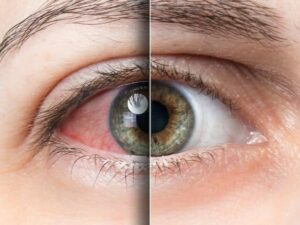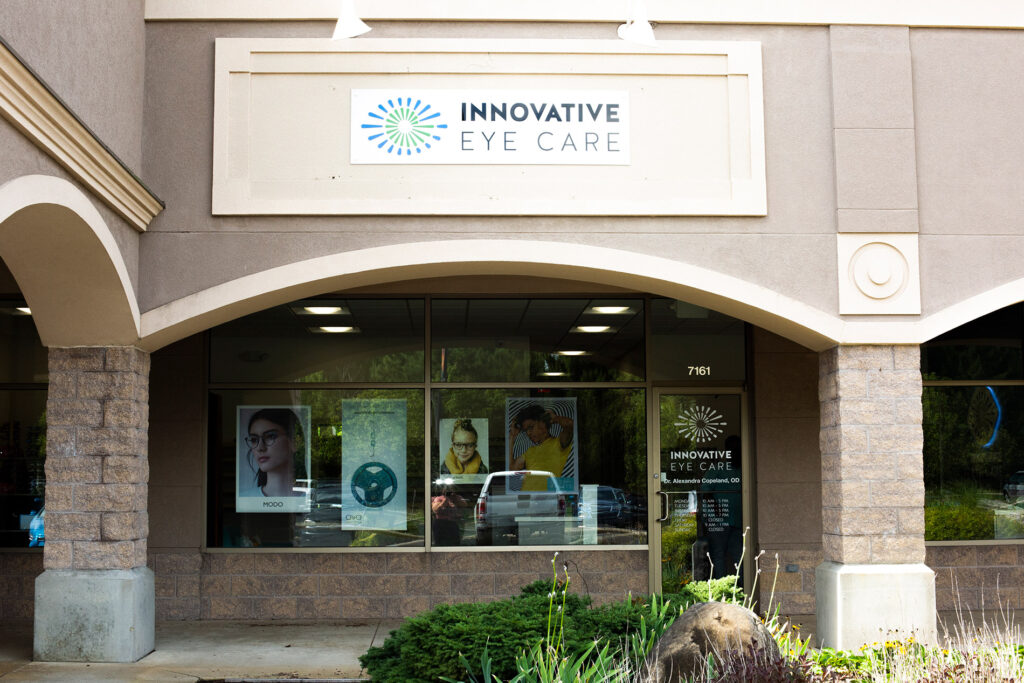Although eyes can feel dry all year around, dry winter air can make these symptoms worse. Dr. Copeland can create a customized dry eye plan to ensure your eyes are feeling and seeing their best.

Symptoms include blurry or fluctuating vision, difficulty wearing contact lenses, eyes that water, are red, feel gritty or sandy, burn or sting, and/or have an overall feeling of discomfort or irritation. A person with dry eye can experience one, some, or all these symptoms. Dryness does not always affect both eyes equally; one eye may be worse than the other.
Believe it or not, the number one reason for eyes to water is because they are dry! When your eye is dry it sends a signal to your tear gland to start making more tears. The extra tears are made to help moisturize your eye. However, your eye can only hold so many tears. The extra tears end up falling down your cheek.
Dry Eye is caused by an inadequate tear layer. Your tear layer sits on the surface of your eye. It keeps your eye moist, provides protect and nutrients, and allows you to see clearly. Not making enough tears, tears evaporation, or poor-quality tears can result in an insufficient tear layer.
There are many different conditions, both biologic and environmental, that cause dry eye. Increased age and being a woman make you more likely to experience dryness. Certain medical conditions like diabetes and autoimmune diseases also cause dry eye. Environmental factors like dry winter air, ceiling fans, and computer use can also lead to dryness.
There are many ways to control dryness through both lifestyle changes and medical interventions. Although worse in some situations, dry eye is a chronic condition that needs constant management for your eyes to feel comfortable and see clearly.
Schedule a dry eye evaluation at Innovative Eye Care with Dr. Copeland today!
